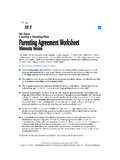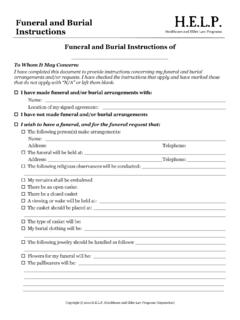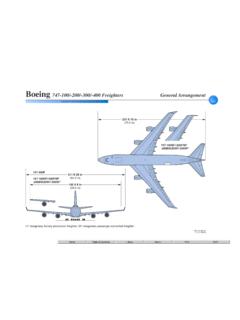Transcription of Founding Documents - wassenaar.org
1 WA-DOC (17) PUB 001 Wassenaar arrangement on Export Controls for Conventional Arms and Dual-Use Goods and Technologies PUBLIC Documents Volume I Founding Documents Compiled by the Wassenaar arrangement Secretariat February 2017 TABLE OF CONTENTS Page I. Final Declaration, December 1995 .. 1 II. Guidelines and Procedures, including the Initial Elements* .. 3 * This compilation (Volume I) includes only the Initial Elements. For the other guidelines and procedures, see the Compendium of Best Practice Documents (Volume III).
2 1 The Wassenaar arrangement on Export Controls for Conventional Arms and Dual-Use Goods and Technologies Final Declaration 1. Representatives of Australia, Austria, Belgium, Canada, the Czech Republic, Denmark, Finland, France, Germany, Greece, Hungary, Ireland, Italy, Japan, Luxembourg, the Netherlands, New Zealand, Norway, Poland, Portugal, the Russian Federation, the Slovak Republic, Spain, Sweden, Switzerland, Turkey, the United Kingdom and the United States met in Wassenaar, the Netherlands, on 18 and 19 December 1995.
3 2. The representatives agreed to establish The Wassenaar arrangement on Export Controls for Conventional Arms and Dual-Use Goods and Technologies. 3. The representatives established initial elements of the new arrangement , to be submitted to their respective Governments for approval. 4. They also established a Preparatory Committee of the Whole to start work in January 1996. 5. The representatives agreed to locate the Secretariat of The Wassenaar arrangement in Vienna, Austria.
4 The first plenary meeting will take place in Vienna on 2 and 3 April 1996. The Peace Palace in The Hague, the Netherlands, on 19 December 1995. 2 3 Guidelines & Procedures, including the Initial Elements(A) December 2016 Note: Amendments made to the Initial Elements since their adoption on 12 July 1996 are indicated by lettered endnotes following Appendix 5 of the Initial Elements. 4 Initial Elements I. Purposes As originally established in the Initial Elements adopted by the Plenary of 11-12 July 1996 and as exceptionally amended by the Plenary of 6-7 December 2001.
5 (B) 1. The Wassenaar arrangement has been established in order to contribute to regional and international security and stability, by promoting transparency and greater responsibility in transfers of conventional arms and dual-use goods and technologies, thus preventing destabilising accumulations. Participating States will seek, through their national policies, to ensure that transfers of these items do not contribute to the development or enhancement of military capabilities which undermine these goals, and are not diverted to support such capabilities.
6 2. It will complement and reinforce, without duplication, the existing control regimes for weapons of mass destruction and their delivery systems, as well as other internationally recognised measures designed to promote transparency and greater responsibility, by focusing on the threats to international and regional peace and security which may arise from transfers of armaments and sensitive dual-use goods and technologies where the risks are judged greatest.
7 3. This arrangement is also intended to enhance co-operation to prevent the acquisition of armaments and sensitive dual-use items for military end-uses, if the situation in a region or the behaviour of a state is, or becomes, a cause for serious concern to the Participating States. 4. This arrangement will not be directed against any state or group of states and will not impede bona fide civil transactions. Nor will it interfere with the rights of states to acquire legitimate means with which to defend themselves pursuant to Article 51 of the Charter of the United Nations.
8 5. In line with the paragraphs above, Participating States will continue to prevent the acquisition of conventional arms and dual-use goods and technologies by terrorist groups and organisations, as well as by individual terrorists. Such efforts are an integral part of the global fight against terrorism.(C) 5 II. Scope 1. Participating States will meet on a regular basis to ensure that transfers of conventional arms and transfers in dual-use goods and technologies are carried out responsibly and in furtherance of international and regional peace and security.
9 2. To this end, Participating States will exchange, on a voluntary basis, information that will enhance transparency, will lead to discussions among all Participating States on arms transfers, as well as on sensitive dual-use goods and technologies, and will assist in developing common understandings of the risks associated with the transfer of these items. On the basis of this information they will assess the scope for co-ordinating national control policies to combat these risks.
10 The information to be exchanged will include any matters which individual Participating States wish to bring to the attention of others, including, for those wishing to do so, notifications which go beyond those agreed upon. 3. The decision to transfer or deny transfer of any item will be the sole responsibility of each Participating State. All measures undertaken with respect to the arrangement will be in accordance with national legislation and policies and will be implemented on the basis of national discretion.








